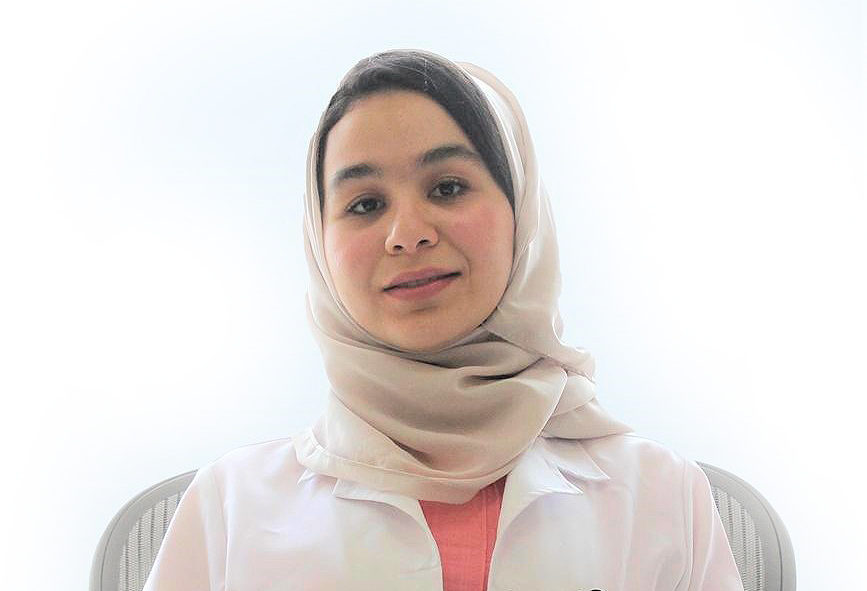Your common questions on eye and dental-related health problems answered by Dr. Aliaa Azzat (Consultant Ophthalmologist) and Dr. Farah Khan (Head of Dental Hygiene Department) at the Dr. Sulaiman Al Habib Medical Center – Diplomatic Quarter.

What are the procedures to be taken when undergoing LASIK surgery? What are its pros and cons?
Refractive corneal surgeries are a wide range of elective procedures with variable techniques that aim to reshape corneal surface to correct the common refractive errors: myopia, hyperopia, and astigmatism. This is best done to patients who wish to get rid of glasses and contact lenses.
When considering corneal refractive surgeries, complete history and full eye examination is needed. In addition, pre-LASIK work up is requested: corneal topography, that is a detailed imaging of corneal thickness, curvature, and certain details of its front and back surfaces, and a special refraction by an optometrist which may require dilating drops.
The visit to a refractive surgeon and work up aims at excluding contraindications to and selecting the most suitable refractive procedure depending on the patient’s age and needs.
If a patient is correctly selected and is compliant to his/her meds, the procedure is mostly safe with a small percentage requiring repeated/redo surgery at a variable time post-surgery. The most common undesirable effect is dry eye syndrome.
What are the reasons for having dry eyes? What can we do to prevent it?
There are many. Most popular are dry weather, changing climates as in traveling, exposure to dust, smoke, air currents, staying in outdoor areas especially in the desert and in farms, taking certain medications like the ones used for acne treatment and glaucoma drops, having allergic skin, nose, and eyes, autoimmune disease like hypothyroidism and rheumatoid arthritis, and also some systemic chronic conditions like diabetes mellitus and chronic/recurrent eyes and eyelids diseases and inflammations.
Prevention depends on the reason if preventable, and treatment is mostly dependent on the severity of symptoms. The condition is chronic and symptoms vary widely from a person to another and from time to time.
If a person is not a candidate for LASIK, are there other procedures that they can undergo to improve their vision?
First, other reasons for poor corrected vision must be ruled out and managed, like diabetic retinal disease. In such cases, corneal refractive surgeries are not performed. In case corneal refractive surgeries are not suitable, there are other intraocular refractive surgeries like implanting a lens in-front of the patient’s normal lens in younger age groups or clear lens exchange with another special lens type in the presbyopic age group. All these procedures have their specific indications and contraindications and are highly dependent on the patient’s needs and the surgeon’s preference.
What can we do to improve our eye health?
Take care of the general health, especially through good nutrition and hydration, control underlying chronic diseases especially diabetes, hypertension and hyperlipidemia, and control autoimmune and rheumatological diseases. Be sure to have an annual eye check-up especially for diabetic patients.
It is highly advisable to check eye vision for children at the age of 4 even when there are no complaints to detect and correct refractive errors and other reasons for amblyopia. It is also very important to protect eyes from environmental factors with UV shield in quality sunglasses and work-related accidents by using protective eye shields.

Dental-related Health Questions:
How often do we need to have our teeth checked in a year? What are some tips that you can give us to protect our teeth?
You need to visit your dentist once a year to check the condition of your teeth and gums. Make sure to brush twice a day and floss at least once a day to protect your teeth.
What are the early signs that someone has a gum problem? How do we improve our gums if it’s already infected?
The early signs that someone has a gum problem is if the gums are puffy, swollen, red, and bleeding. Visit your Oral Hygienist twice a year and follow oral hygiene protocol at home.
Do we have to remove our wisdom teeth? When is the best time to remove it?
It requires proper assessment.
What’s the best way to whiten teeth? Is there a procedure that we can avail at the medical center?
Whitening the teeth depends from patient to patient. We need to assess you first to know what procedure needs to be done.




